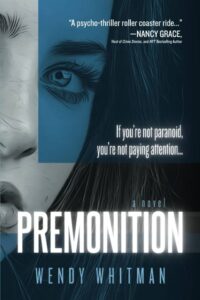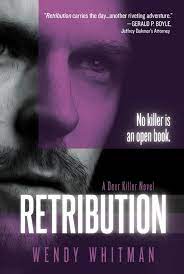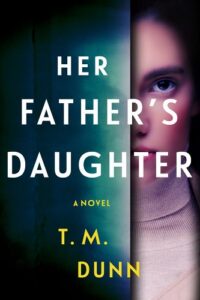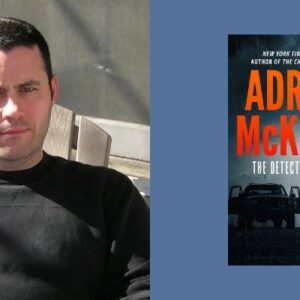“Pull over,” Allan shouted from the passenger seat. The rain was blinding. I refused to stop. My daughter was working the late shift and needed a ride home.
“She can take an Uber,” he shouted.
I couldn’t trust a random driver to bring my daughter home to safety. That was my job, her mother. With my hands clutched to the wheel, I drove fifteen miles an hour on the highway, the speed limit was 55, passing the dozens of other cars that had pulled over.
In 1982 Angela Cavallo lifted a Chevy Impala off of her teenage son. We may not have heard the name Angela Cavallo, but most likely we have heard the story about the mother who saved her child’s life by lifting a car. There are various hypotheses on how it could be possible, fathomable, for a one-hundred-and-forty-pound person to lift a two-ton car.
It all starts with love. According to scientists, there are various hormones, chemicals… I’ll stop there. Whether “Love” is rooted in a petri dish in a lab or on some metaphysical plane matters less to me than the power love has on a human that allows them to conquer all!
In Angela Cavallo’s case, the love she had for her son gave her the super-human strength for her to commit the extraordinary feat of lifting a car to save him. In my case, the love for my daughter clamped the part of my brain that flashes: WARNING, DANGER, STOP.
If we are to, and who are we to not, give credence to Isaac Newton’s third law of physics, we know that for every action there is an equal and opposite reaction.
Love conquers all, opposite reaction=Love destroys.
In my debut thriller, Her Father’s Daughter, the father’s love for his daughter makes the seemingly impossible, possible. For a serial killer he does the extraordinary. For twenty-five years he sequesters his “true self” and doesn’t kill. It’s that same conquering love that pushed him to kill again.
I can’t think of any genre that doesn’t in one way or another touch, or push hard, against the theme. When you have a thriller with a complex serial killer (an oxymoron) as the antagonist (or sometimes the protagonist) exploring the theme of love that conquers and destroys, the author has the opportunity to create a deep visceral and emotional connection for their reader, especially when family and/or romantic loves are involved.
If I could count the number of thrillers I’ve read, loved, and relished over the past decade that grabbed me by the throat and heart and messed me up (in a good way) long after I read the last page, it would take way beyond the space I have been allotted for this essay. Over the past year, there have been five authors who do an extraordinary job where the consequences of a love run deep enough to drown.
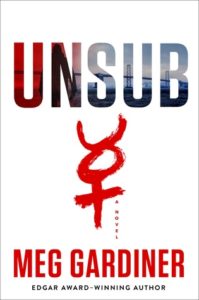
Meg Gardiner’s UNSUB was published in 2017, and when the Boston Globe wrote that it had hints of “Silence of the Lambs,” I immediately clicked and purchased the hardcover. Anyone who had ever taken one of my creative writing classes knows that Hannibal Lecter is one of my favorite characters of all time. How the author, Thomas Harris, manages to get you, me, to root for a serial killer is extraordinary. I shamefully admit I let life get in my way and never read the novel. It was only recently, with a very long drive ahead of me to see my sister, I downloaded the audiobook and was captivated, no serial killer pun intended. There’s no question that the protagonist’s love for her father is the inspiration for her to become a detective who solves crimes and protects people.
When the serial killer, to whom her father devoted years of his life and most of Caitlin’s childhood trying and failing to stop, surfaces again, the love for her father, the need to save him, leads her down the similar destructive path that in many ways destroyed her father.

Gabino Iglesias’s Devil Takes You Home may not be seen as a serial killer’s story. If we are to give merit to Britannica “… [S]erial killing, the unlawful homicide of at least two people carried out by the same person (or persons) in separate events occurring at different times.” The actions of Mario, our protagonist, fits this definition. Mario’s love for his daughter, her memory, and of his estranged wife is the match that pushes this devoted father and husband, who never committed a crime, to take unfathomable risks, including endangering his own life.
The next three authors whose novels are filled with passion, tension, and twists and turns where love both conquers and destroys, I’ve recently had the privilege of asking: How do your book(s) speak to the theme Love Conquers All, But May Also Destroy.
Wendy Whitman, author of Premonition and the sequel Retribution, says, “Love is an irrational, overpowering emotion that can cause people to make terrible mistakes they ordinarily would never make.” She goes on to say how the characters in her novels “fare no better.”
Cary Mackin, a television True Crime journalist, has a deep-rooted fear of being murdered. The question raised at the start of the novel is: Why, how, does this same person go into a profession where murder is always around? As the novel progresses, we discover how and why this may be. It’s clear, also from the start, she loves her work and has a deep-rooted desire to see that the victim’s loved ones get the justice they deserve.
Then there’s Cary’s girlfriend, Detective Hank Nowak, who is so in love, devoted, to Cary that she risks everything, personally and professionally, to find a serial killer.
Love conquering and destroying continues in RETRIBUTION, the sequel.
Here, the four main characters’ love, romantic or familial, gets the best of them.
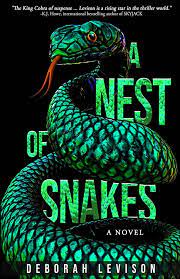
Author Deborah Levison’s novel, A Nest of Snakes, is another example of how a father’s love for his child gives him the lifting-the-car emotional strength to go public with his story, a story he kept secret for decades. He ignores his lawyer’s warning that if he goes through with testifying, painful soul-crushing memories will surface.
When asked the question: Does love destroy in your novel? Levison’s response was, “His [the father’s] love for his son pushes him to move forward and the horrible secrets that emerge during the trial, no one could have predicted all that would be destroyed… evidence, reputations, innocence, and silence.”

Last, but many stuffed bookshelves from least, is The Dead Season, the first in the Shana Merchant series by Tessa Wegert. Shana’s love for her family, her work, and the need for justice to prevail, gives her the strength to conquer her severe PTSD, return to her hometown with its terrifying secrets, and confront the many demons of her past. This conquering-love that gives her the courage to do whatever it takes to take down a serial killer also leads to damaging choices that threaten to destroy her family, her career, and her mental state. I don’t think it’s too far-fetched to say the serial killer’s love (in the way he can love) for Shana is the reason he survives his past and his psychotic state. There’s no question this love destroys—kills.
When asked the question of the day, “Does love conquer all but sometimes destroys, in Shana Merchant’s story, Wegert’s response was, “You might say that Shana sabotages her own life in order to save others over the course of every book in the series — and I agree that, in Shana’s case, love both conquers and destroys.”
***


